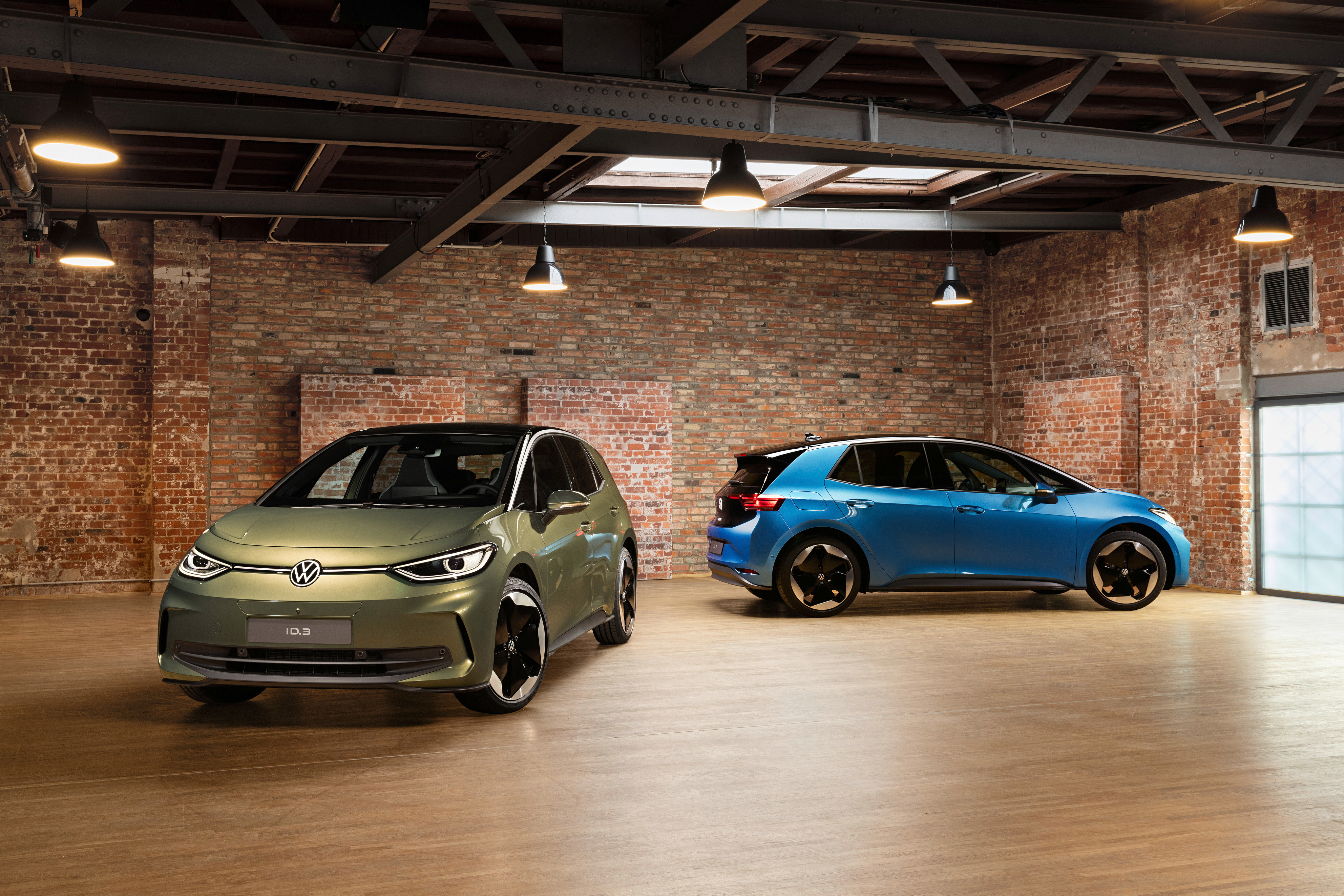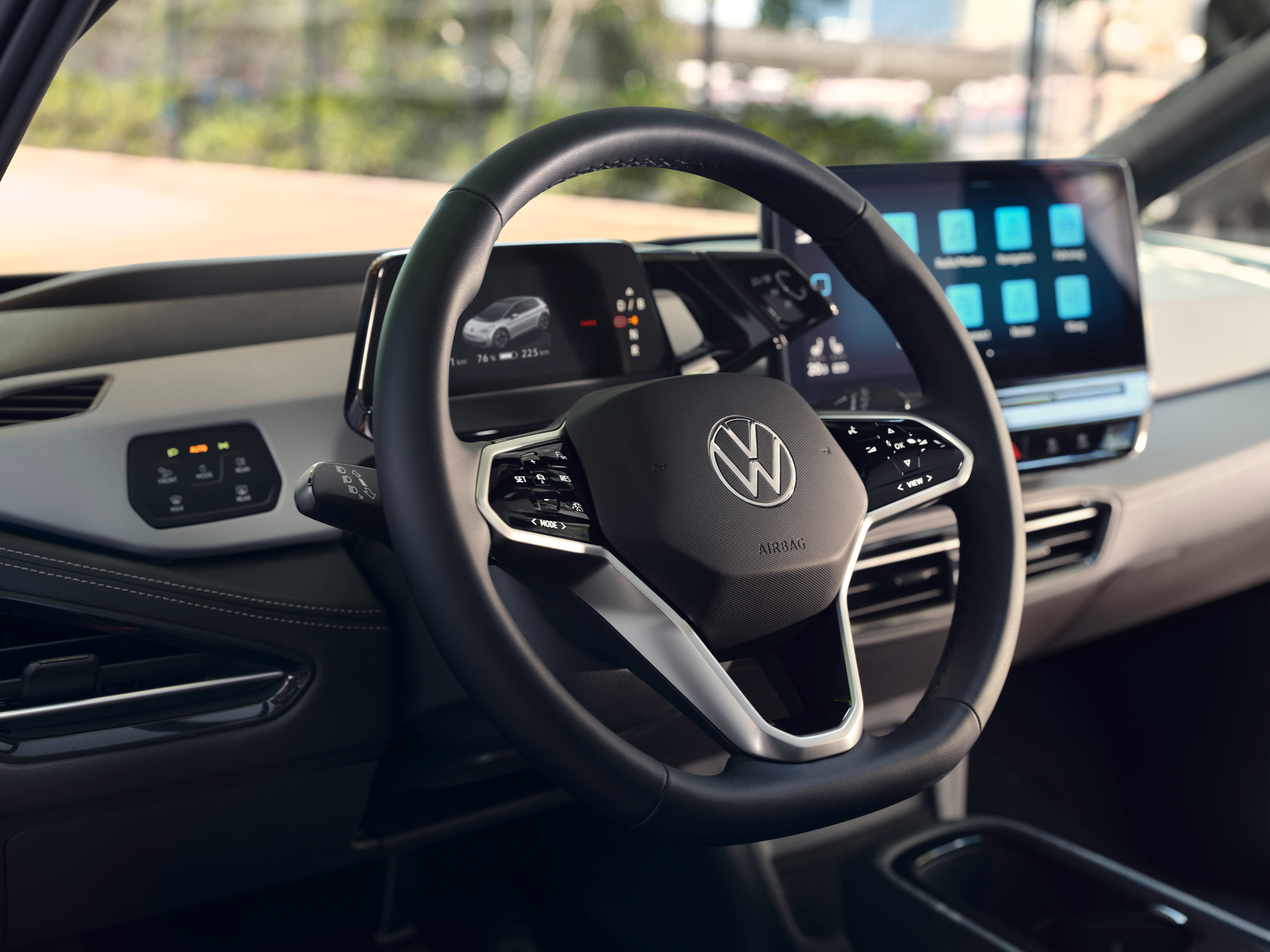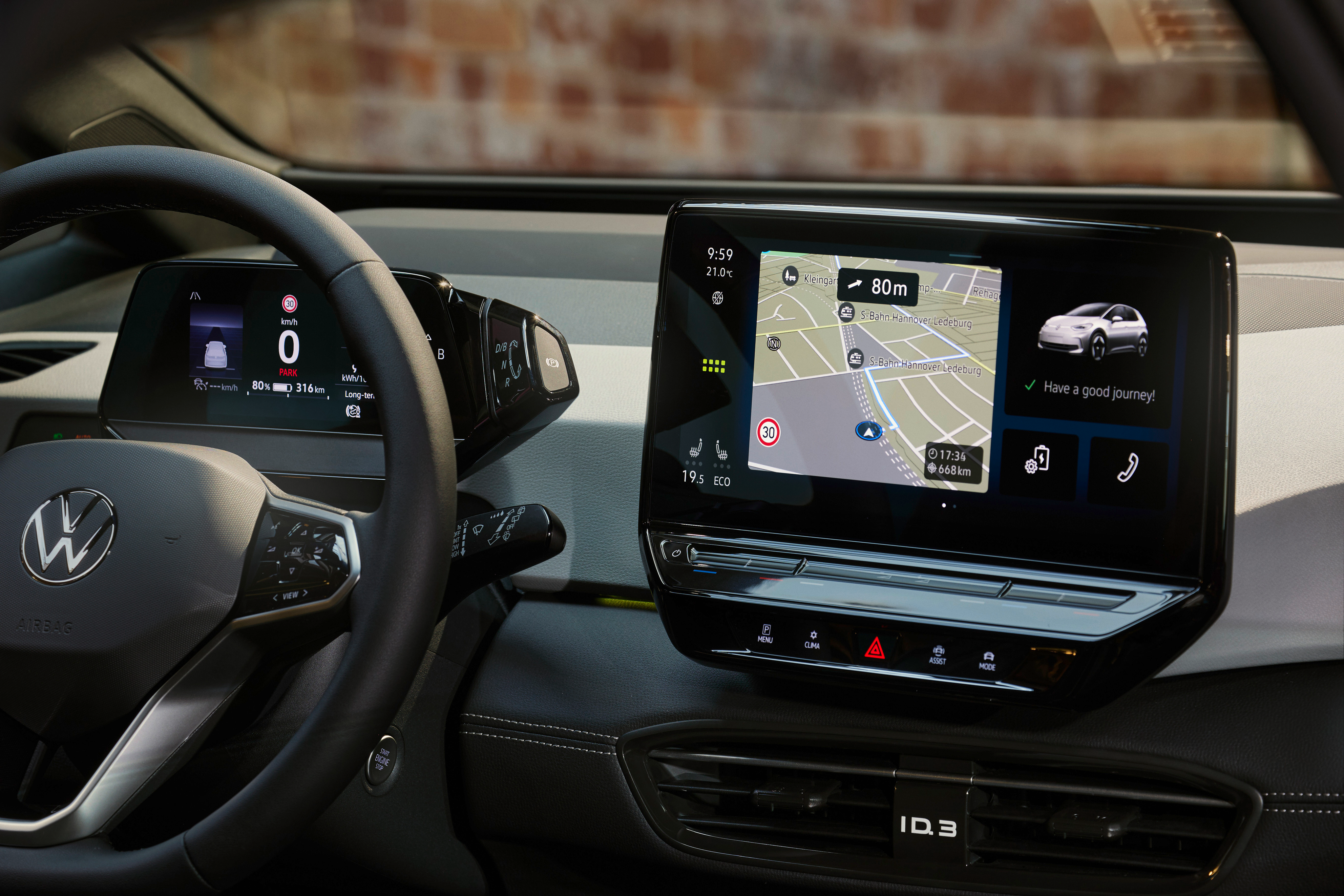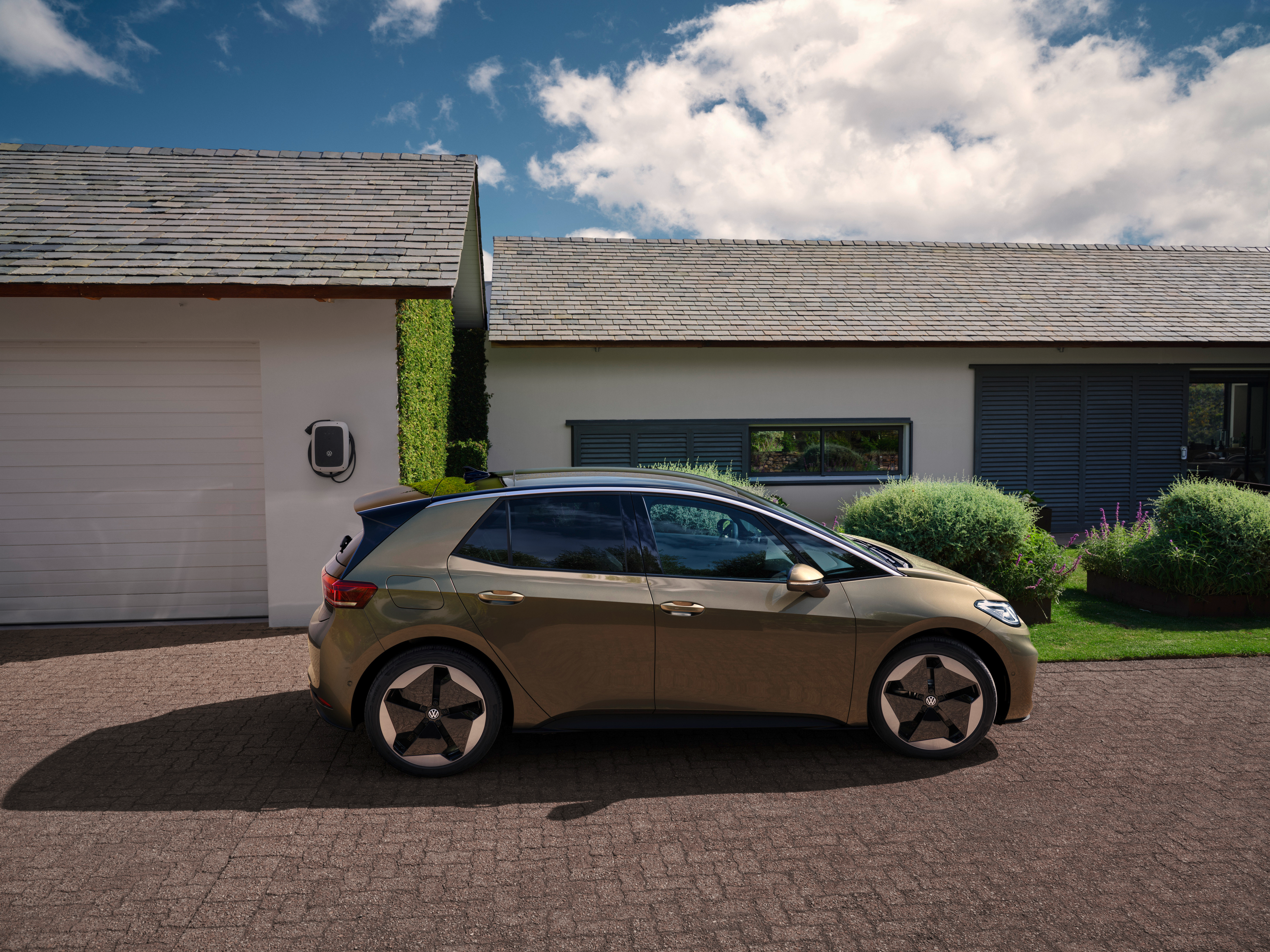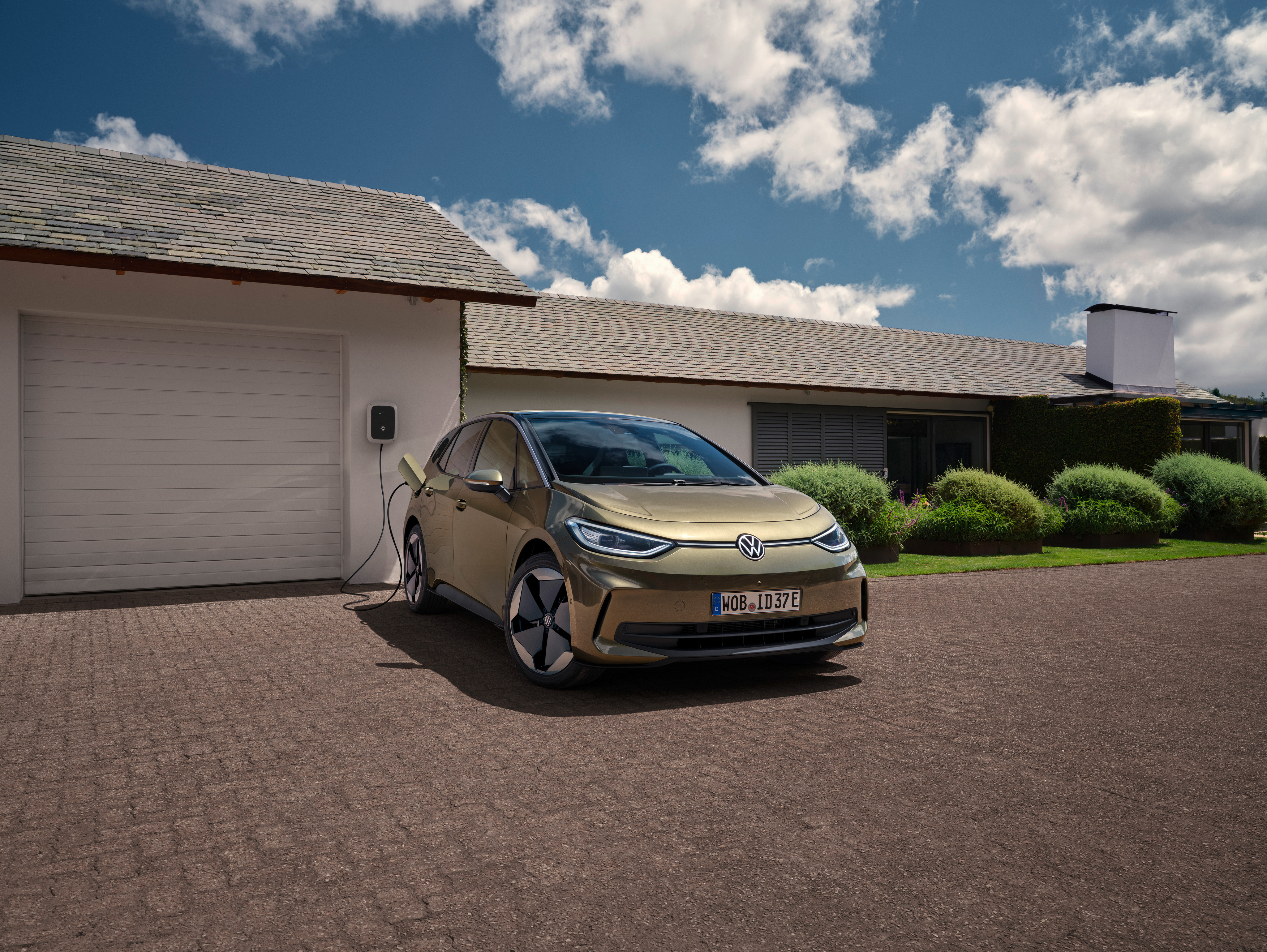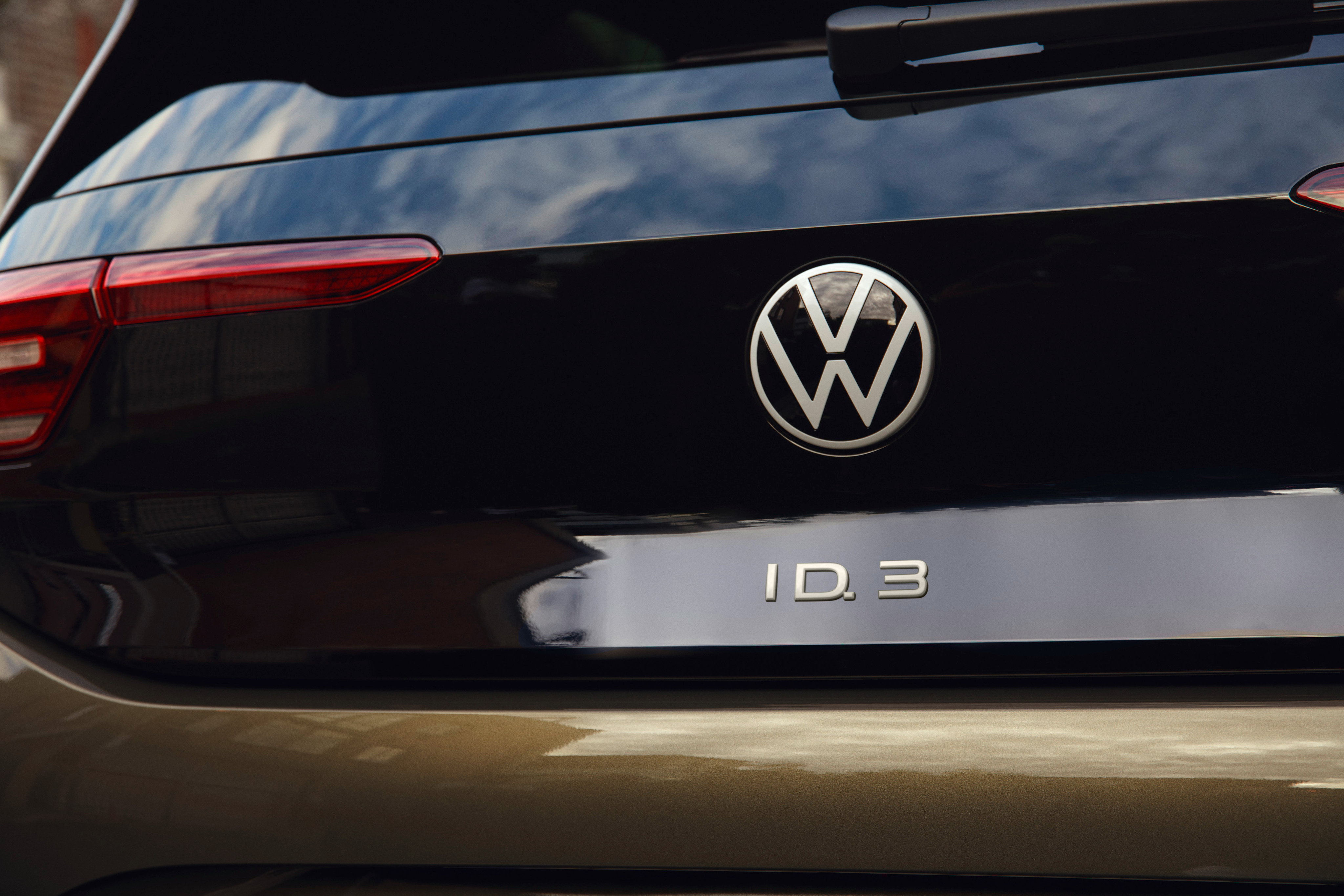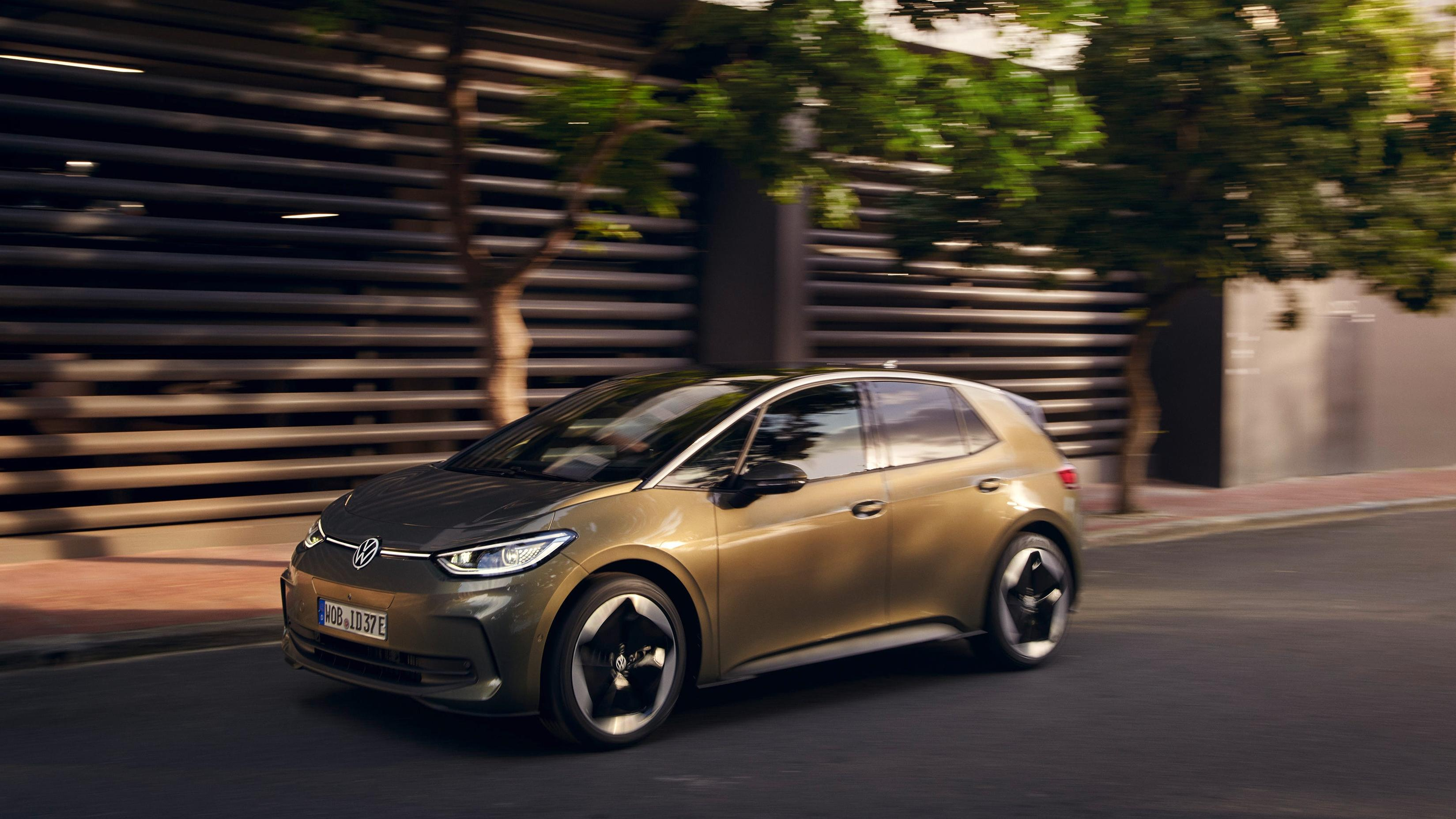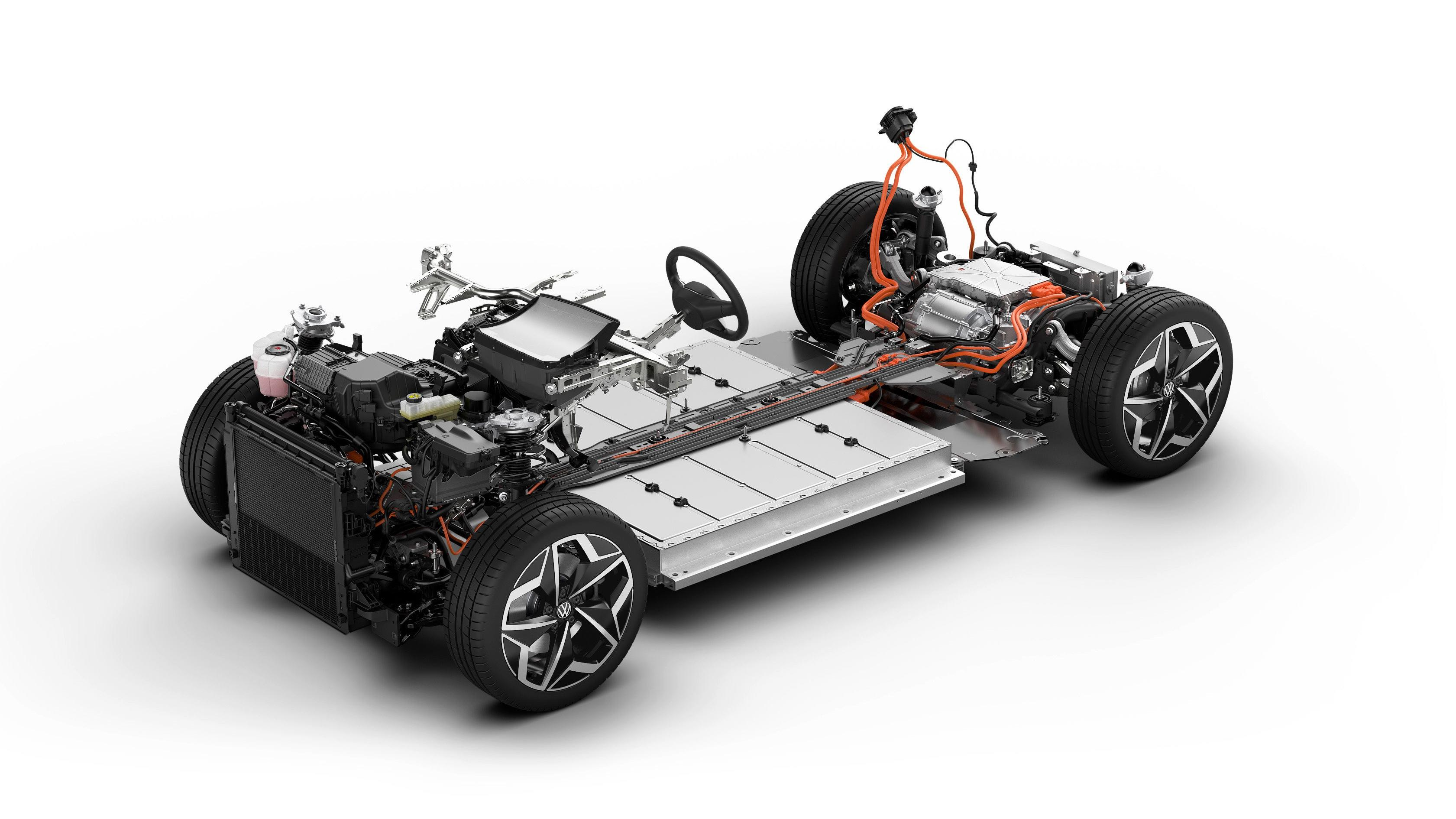The Volkswagen ID.3 Gets A Facelift And More Subscription Services
Volkswagen's smallest EV is sporting small changes both inside and out, with a bigger infotainment screen and new subscriptions.
Less than three years after its initial release, the Volkswagen ID.3 is getting a redesign prompted by feedback that VW received from the new EV's owners. The Volkswagen ID.3 launched in 2020 in Europe and other markets abroad as the first model built on the MEB electric platform, as Auto News reports. The fully-electric hatchback was a shot across the bow at Tesla, and Volkswagen's entry in earnest into the EV race. It also happened to be a very handsome car.
In case you missed it:
-
Boeing Engineers Set a New World Record for Paper Plane Flight Distance
-
Dealership Cleaning Crew Caught Putting Racial Slur on Oil-Change Reminder Stickers
-
California Offers Low-Income Residents $27,000 to Buy EVs if They Can Figure Out How to Apply
This latest redesign hasn't changed those good looks, thankfully. The new new VW ID.3 keeps most of what made the original great. Volkswagen calls this new model the second-generation of the ID.3, but the changes are not as dramatic as a new generation would imply. To be fair, now that more EVs are hitting the market, it's likely that new generations will be harder to tell apart from older ones.
If EVs are all about modularity and versatile platforms, then major components will mostly go unchanged as the cars evolve. That's more or less the case with the new ID.3, which is why the EV is powered by the same powertrain as before.
The ID.3's rear-mounted motor will still make about 201 horsepower and 229 lb-ft of torque. The electric motor will draw energy from either a 58 or 77 kWh battery, depending on the model. The ID.3 Pro comes with the smaller battery and can travel up to 426 kilometers (265 miles) per charge. While the ID.3 Pro S comes with the bigger battery and will travel up to 546 kilometers (339 miles).
The big changes to the ID.3 are mostly cosmetic, with the EV being styled to look more "conventional," according to Auto News. The car still looks pretty spiffy to me, but I dig the idea that any EV is now old enough to be settling into a "conventional" phase. I've never been behind the trend of making EVs stand out in unnecessary ways just because of their drivetrain. In fact, at some point we won't even call them electric cars; they'll just be cars — no qualifier needed.
The ID.3 gets new, sleeker bumpers and some of the exterior design bits have been removed to make the car look less cluttered. It's a cleaner look overall. The changes extend to the interior of the car, too. Owners reportedly told VW that the cabin of the ID.3 felt less premium than expected at launch. So, Volkswagen added "soft foam-backed surfaces" throughout the cockpit to make the ID.3 a more pleasant and comfortable car to drive. VW paid attention to the points of contact on the doors and elsewhere.
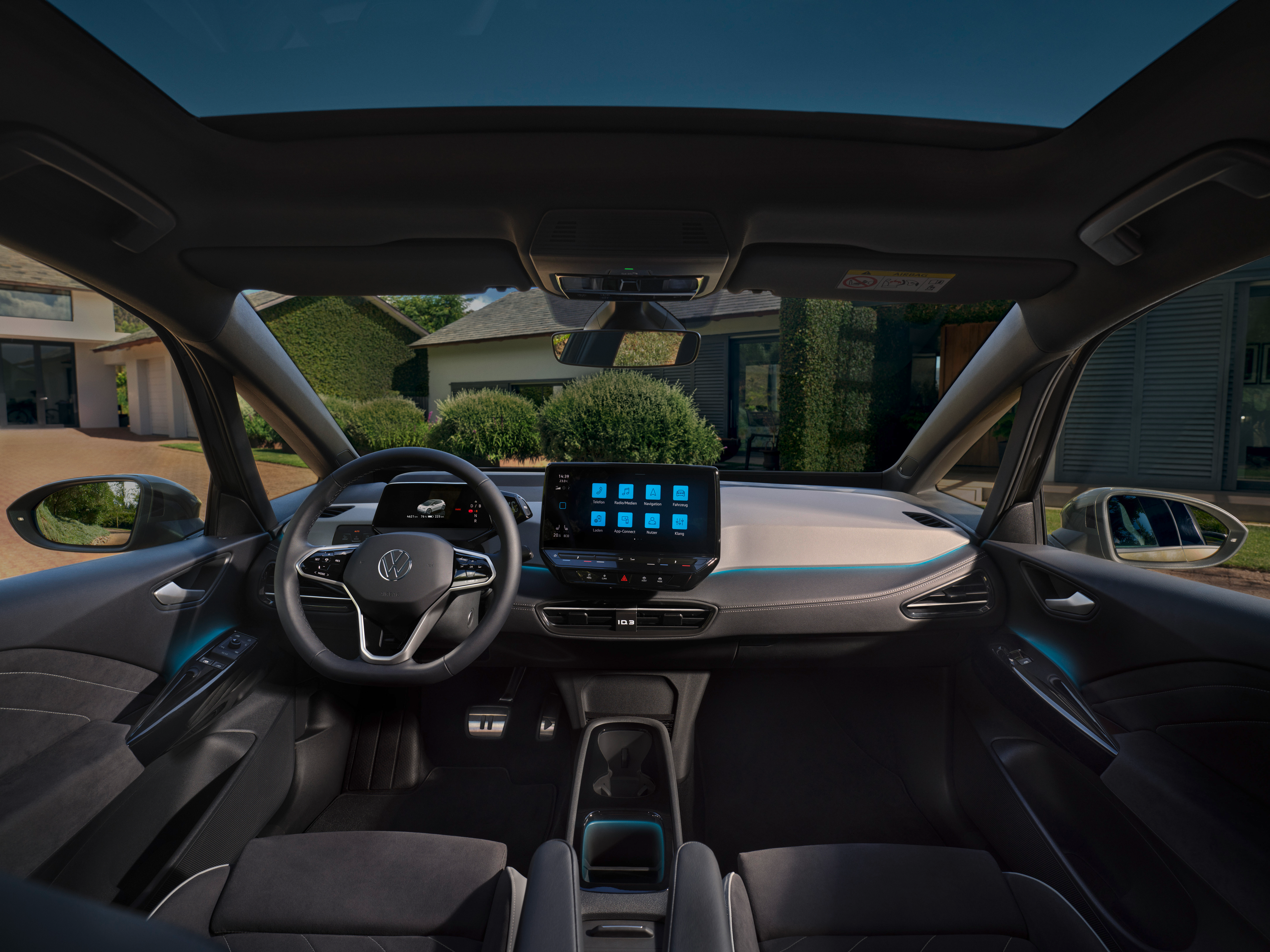
The ID.3's dashboard also got upgrades to make the car more intuitive and user-friendly. The infotainment got a bigger screen, going from the previous 10-inch display to a new 12-inch display, although only in left-hand drive models. Models sold in right-hand markets will keep the smaller screen for now.
Volkswagen revamped both the ID.3's software and its UI, making it easy to monitor and access the most important function of any EV: the charging menu. That critical information can now be accessed through the first level or menu on the infotainment display, which fixes one of the biggest problems owners of the previous ID.3 generation had with the car's interface.
Volkswagen also updated the ID.3's software to make OTA updates easier, and added more options for fan-favorites tied to subscription services. Owners will find more options in the car's online shop, including adaptive cruise control and other ADAS features, which are only accessible via digital (recurring) purchases in certain markets. It sure looks like subscription services are here to stay. Maybe that's how we'll be able to tell generations apart going forward. But at least the ID.3 is still a looker, though it remains unavailable in the U.S.
